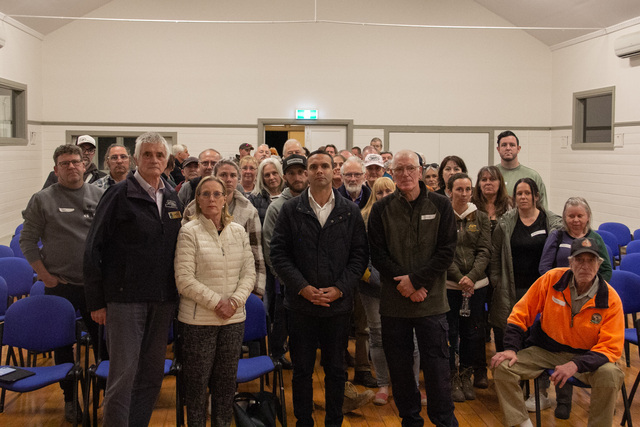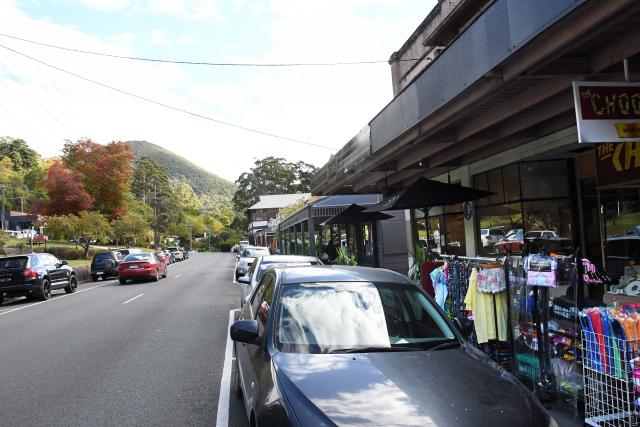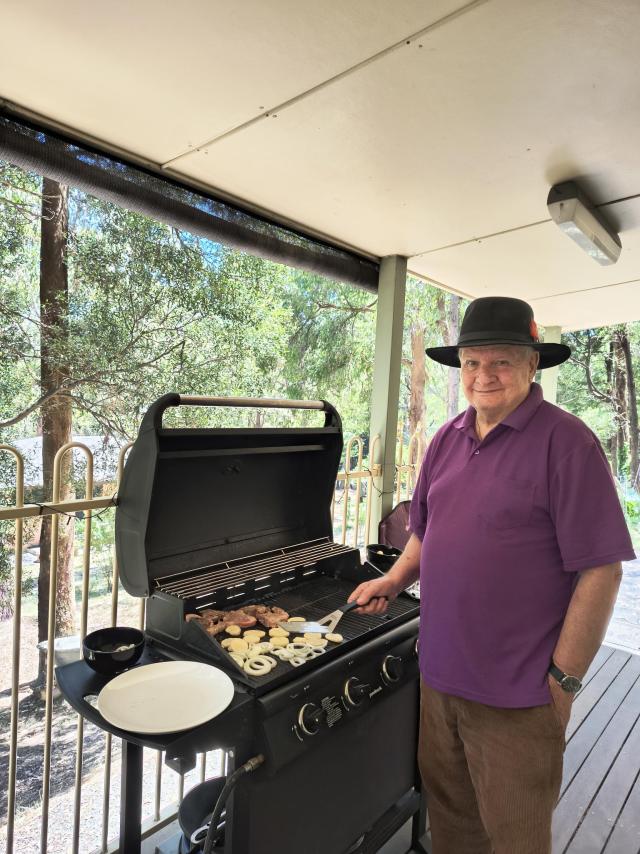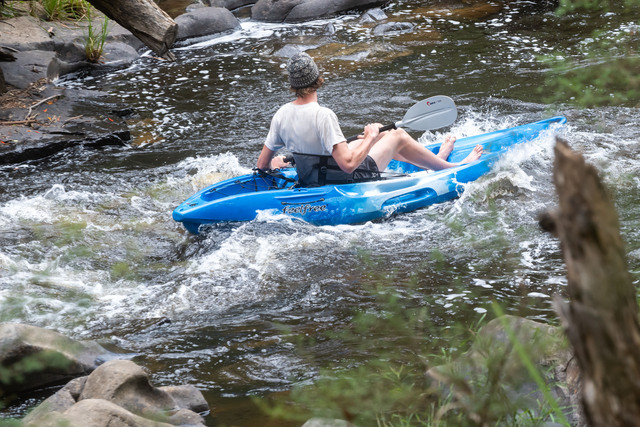By Kath Gannaway
LONG-GULLY Road is perhaps a 10 minute drive from one end to the other on a normal day.
On Black Saturday it took the Hoddles Creek crew four and a half hours to get through to residents stranded about six kilometres in from the Healesville end.
One of several strike-team units in the area, their primary task was to help rescue two people trapped in a cellar.
Long Gully Road was hit hard as the fire raced through from Dixons Creek. The road is narrow, heavily treed with rural properties on one side and national park on the other rising over the steep range from the valley floor down into Chum Creek.
With the Bunyip fire burning to the east of their patch, the brigade of 32 members stayed close to home most of the day, fielding calls from worried locals.
Their first call out had been to a power-pole fire near Yellingbo at 12.45am – a jarring start to the day.
By late afternoon, all hell had broken out across the Yarra Valley and they were called out to Healesville.
“It’s hard, because you’re leaving your own backyard undefended; we stayed as long as we could,” said brigade captain Anthony Packer.
As they turned into Long Gully Road some time after dark, people were calling for them to stop and help, to not forget they were there.
“One elderly resident down the bottom was saying ‘don’t leave us here; please help us’, but they were under minimal threat by then and our original task was to find the husband and wife trapped in the cellar further along,” he said.
Cutting their way through, in some areas with the fire still burning making it hard to see where the bush ended and the road began, they got about two and a half kilometres in and had to call for a bulldozer to clear the way.
“It was about 2.30 when we finally got to the top of the road; they were so pleased to hear the dozer coming up the road with the fire truck behind it,” Mr Packer said. “We were greeted with cuddles and cheers.”
They were relieved to discover the people trapped in the cellar had escaped. The house was destroyed but they had managed to get out and go to a neighbouring property.
“It was fortunate; there were about four or five houses destroyed along that road, but there no deaths,” he said.
Although the Friday night briefing had prepared him mentally for the event, Mr Packer says nothing could have prepared anyone 100 per cent for what eventuated.
The role of Hoddles Creek’s second lieutenant Leonie Turner on Black Saturday was every bit as critical.
More than 18 years as a fire fighter is the sort of experience which has to be invaluable for anyone assigned to record communications on the ground.
She was scribe with strike team 1394 on Black Saturday, working alongside the strike team leader noting everything coming over the radio, and from him.
“Basically, any information that goes back and forward … it’s intense sometimes,” she said but, as if it is a saving grace, “you can abbreviate your words”.
Team 1394 left from Wandin to go to Domain Chandon winery at Coldstream then on to Chum Creek, Yarra Glen and Dixons Creek.
Time and the detail of what was going on outside the lead vehicle are, she said, a bit of a blur.
“I was too busy really to take it all in to start with. You are tasked to do a specific job and you just do it,” Ms Turner said.
“You see lots of things but you just keep focused on the job. You didn’t see the enormity of that day until later.”
It’s hard to imagine that with the volume and content of radio traffic, and what was going on physically all around, the situation wouldn’t be totally overwhelming but there is no sense of that all with Ms Turner. “We are just the army on the ground. Everyone in the ICC (Incident Control Centre) is working on the bigger picture whereas we only have what’s in front of us,” she said.
“You see lots of things but you just get on with it. You can’t afford not to.”
There are some self-imposed, self-protection mechanisms, however.
“My imagination never went to the limits the fire did,” Ms Turner said when asked how she coped immediately and in the days after Black Saturday.
“I didn’t know until I came home (about Kinglake and Marysville); I never read any newspapers while the fires were going on… or for a few weeks after.
“It wasn’t nice,” she said.
Crews learn how to cope
Digital Editions
-

Livestock losses the spotlight for May
In May, an article which stood out above the rest was the coverage of a rise in attacks on livestock by wild animals. A rise…





